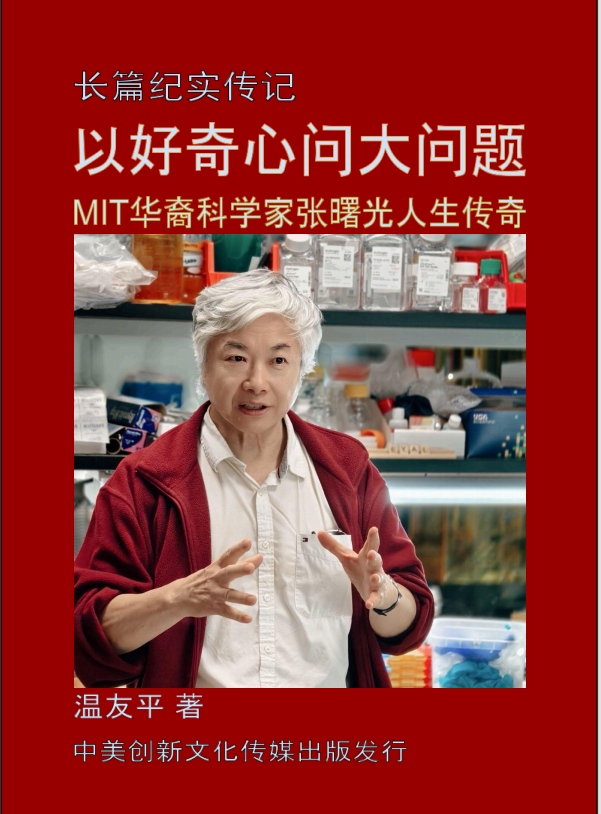曼哈顿检察官提议将特朗普审判推迟30天

【中美创新时报2024年3月15日讯】(记者温友平编译)距离唐纳德·特朗普因刑事指控在曼哈顿受审不到两周,提起诉讼的检察官提议推迟最多 30 天,这是对美国前总统的首次起诉,这是一个令人震惊的进展。对此,《纽约时报》记者本·普罗特斯(Ben Protess)和玛吉·哈伯曼(Maggie Haberman )作了下述报道。
曼哈顿地区检察官办公室指责特朗普在 2016 年总统竞选期间和之后掩盖了性丑闻,并表示延迟将让特朗普的律师有时间审查新一批记录。该办公室一年多前就寻求过这些记录,但直到最近才从联邦检察官那里收到这些记录,联邦检察官多年前就调查了该案核心的封口费。
针对数万页的新记录,特朗普的律师要求将审判推迟 90 天。尽管这位前总统经常要求推迟,但检察官同意任何推迟都会使推迟的可能性大得多。
特朗普本周第三次获得共和党总统提名,面临四项刑事审判和几项诉讼。曼哈顿案是四起刑事案件中唯一没有陷入拖延的案件。
现在它似乎也有可能被推迟,尽管它仍有望在选举日之前进行审判。
地区检察官阿尔文·布拉格 (Alvin Bragg) 在一份法庭文件中表示,他的检察官准备按计划于 3 月 25 日开始审判,但他们并不反对推迟 30 天,“出于谨慎考虑,并确保被告 有足够的时间来审查新材料。”
负责曼哈顿案件的法官胡安·M·默昌(Juan M. Merchan)必须批准任何拖延,目前尚不清楚他将如何以及何时做出裁决。默昌一直致力于在每一个转折点上推动案件的进展。
曼哈顿案的任何拖延很可能会让这位前总统感到高兴,他应对法律纠纷的核心策略就是拖延。
如果他在 11 月当选连任,针对他的刑事案件将逐渐停止,直到他下台。司法部的政策是,现任总统不得因刑事指控而接受审判,地区检察官办公室也应遵守这一规定。
特朗普的律师拒绝就曼哈顿案件可能被推迟的情况发表评论。
此案源于 2016 年竞选期间向色情演员斯托米·丹尼尔斯支付的封口费。特朗普的前掮客迈克尔·科恩付给丹尼尔斯 13 万美元,以平息她与特朗普发生性接触的故事。
检察官称,当特朗普偿还科恩的费用时,他的家族企业在内部记录中错误地将这笔还款描述为“法律费用”,继续掩盖事实,在选民前往投票站之前隐瞒了可能具有破坏性的信息。
2018 年,曼哈顿的联邦检察官得知了这笔交易,并威胁要起诉科恩,科恩最终承认违反竞选财务规定。
对于布拉格来说,此案是一个职业生涯的时刻,延迟的请求反映了他一贯的谨慎态度。如果他的检察官未能将某些记录移交给特朗普的律师,法官可能会完全驳回此案。
华盛顿的另一起针对特朗普的刑事案件最初原定于本月开庭审理,但由于特朗普向最高法院上诉,特朗普被指控密谋推翻 2020 年选举结果。
在另一起涉及佛罗里达州机密文件处理不当的案件中,一名联邦法官周四驳回了特朗普提出的驳回指控的请求,并在数小时的辩论中对审判前另一项试图破坏检方的努力表示怀疑。
美国地区法官艾琳·坎农(Aileen Cannon)发布了一份长达两页的命令,称尽管特朗普团队提出了“值得认真考虑的各种论点”,但不值得驳回指控。 此案涉及特朗普离开白宫时带到海湖庄园的几箱记录,其中一些是高度机密。
被前总统任命为法官的坎农在三个多小时的辩论中明确表示她不愿意审理此案。她一度表示,撤销起诉书“很难看到”,而废除一项《间谍法》法规将是“相当非同寻常”的一步,该法规支撑着针对特朗普的大部分重罪,但他的律师 争论是违宪的模糊的。
该裁决对于案件何时可能进入审判留下了悬而未决的问题,并且仅涵盖了周四在法庭上争论的两项动议中的一项。关于特朗普离开白宫后是否可以根据《总统记录法》保留这些文件的另一项动议仍有待审理,但法官似乎也不愿意以此为由驳回此案。
“很难看出这如何让你撤销起诉,”她告诉特朗普的一名律师。
特朗普参加了周四的辩论,在辩护桌上有时双手紧握在身前,聚精会神地听着。
本报告使用了美联社的材料。
题图:前总统唐纳德·特朗普。BRETT CARLSEN/BLOOMBERG
附原文英文报道:
Manhattan prosecutors propose a 30-day delay of Trump trial
By Ben Protess and Maggie Haberman New York Times,Updated March 15, 2024
NEW YORK — Less than two weeks before Donald Trump is set to go on trial on criminal charges in Manhattan, the prosecutors who brought the case proposed a delay of up to 30 days, a startling development in the first prosecution of a former American president.
The Manhattan district attorney’s office, which accused Trump of covering up a sex scandal during and after the 2016 presidential campaign, said the delay would give Trump’s lawyers time to review a new batch of records. The office sought the records more than a year ago but only recently received them from federal prosecutors, who years ago investigated the hush-money payments at the center of the case.
In response to the new records — tens of thousands of pages of them — Trump’s lawyers requested that the trial be delayed 90 days. Although the former president frequently requests such delays, prosecutors consenting to any postponement makes one far more likely.
Trump, who clinched the Republican presidential nomination for the third time this week, faces four criminal trials and several lawsuits. The Manhattan case had been the only one of the four criminal cases not mired in delays.
Now it too appears likely to be postponed, though it remains on track to reach trial before Election Day.
In a court filing, the district attorney, Alvin Bragg, said his prosecutors were prepared to begin the trial March 25 as planned, but that they did not oppose a 30-day delay “out of an abundance of caution and to ensure that defendant has sufficient time to review the new materials.”
The judge overseeing the Manhattan case, Juan M. Merchan, would have to approve any delay, and it remains unclear how and when he will rule. Merchan has made a point of pushing the case forward at every turn.
Any delay in the Manhattan case would most likely delight the former president, whose central strategy for fighting his legal entanglements is to stall.
If he were elected to a second term in November, the criminal cases against him would grind to a halt until he was out of office. It is Justice Department policy that a sitting president cannot face trial on criminal charges, and the district attorney’s office is expected to adhere to that.
A lawyer for Trump declined to comment on the potential delay of the Manhattan case.
The case stems from a hush-money payment to porn actor Stormy Daniels, made during the 2016 campaign. Michael Cohen, Trump’s former fixer, paid Daniels $130,000 to silence her story of a sexual encounter with Trump.
When Trump reimbursed Cohen, prosecutors say, his family business falsely described the repayments in internal records as “legal expenses,” continuing a cover-up that withheld potentially damaging information from voters just before they went to the polls.
In 2018, federal prosecutors in Manhattan learned of the deal and threatened to indict Cohen, who ultimately pleaded guilty to campaign finance violations.
For Bragg, the case is a career-making moment, and the request for a delay reflects his typically cautious approach. If his prosecutors had failed to turn over certain records to Trump’s lawyers, the judge could have thrown out the case altogether.
A separate criminal case against Trump in Washington, where he is accused of plotting to overturn the 2020 election results, was initially supposed to go to trial this month, but that is delayed while Trump appeals to the Supreme Court.
In another case, this one involving the mishandling of classified documents in Florida, a federal judge on Thursday rejected one bid by Trump to dismiss the charges and appeared skeptical during hours of arguments of a separate effort to scuttle the prosecution ahead of trial.
US District Judge Aileen Cannon issued a two-page order saying that though the Trump team had raised “various arguments warranting serious consideration,” a dismissal of charges was not merited. The case involves boxes of records, some highly classified, that Trump took to his Mar-a-Lago estate when he left the White House.
Cannon, who was appointed to the bench by the former president, had made it clear during more than three-and-a-half hours of arguments that she was reluctant to the case. She said at one point that a dismissal of the indictment would be “difficult to see” and that it would be “quite an extraordinary” step to strike down an Espionage Act statute that underpins the bulk of the felony counts against Trump but that his lawyers contend is unconstitutionally vague.
The ruling left unanswered questions over when the case might proceed to trial and only covered one of the two motions argued in court on Thursday. A separate motion about whether Trump was permitted under the Presidential Records Act to retain the documents after he left the White House remains pending, but the judge also seemed disinclined to throw out the case on those grounds.
“It’s difficult to see how this gets you to the dismissal of an indictment,” she told a Trump lawyer.
Trump attended Thursday’s arguments, listening intently with his hands sometimes clasped in front of him on the defense table.
Material from the Associated Press was used in this report.



